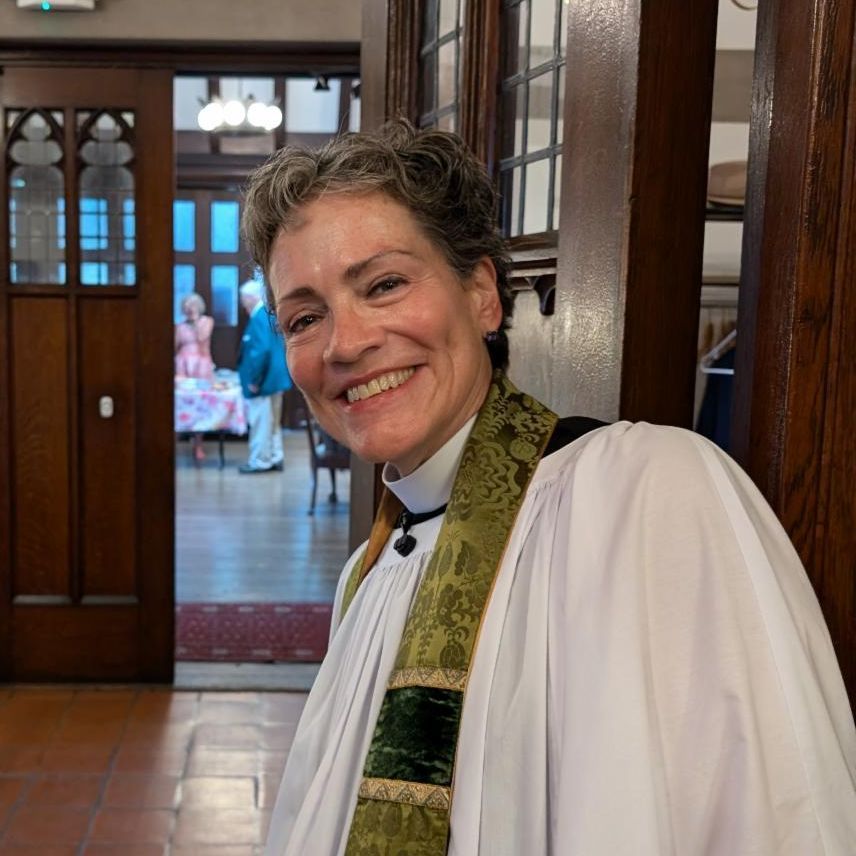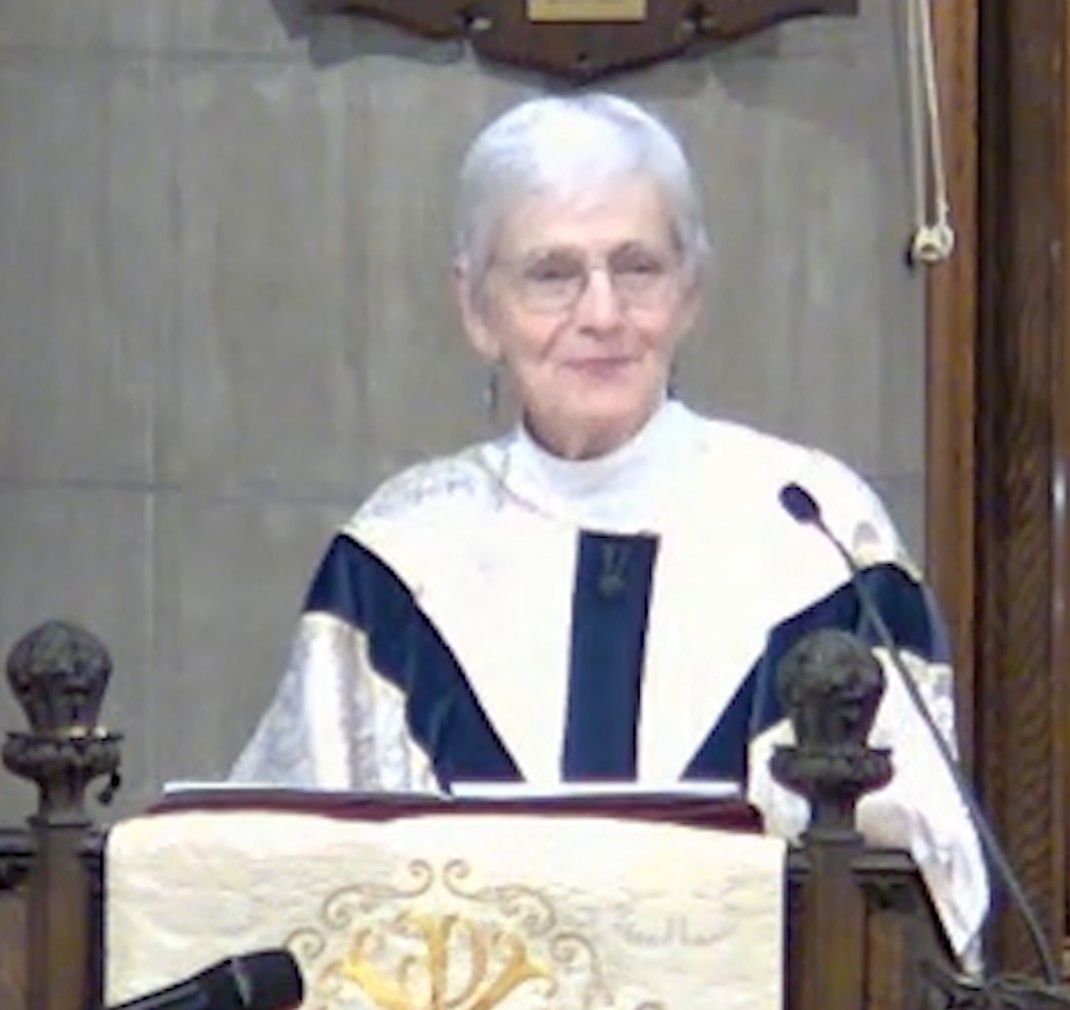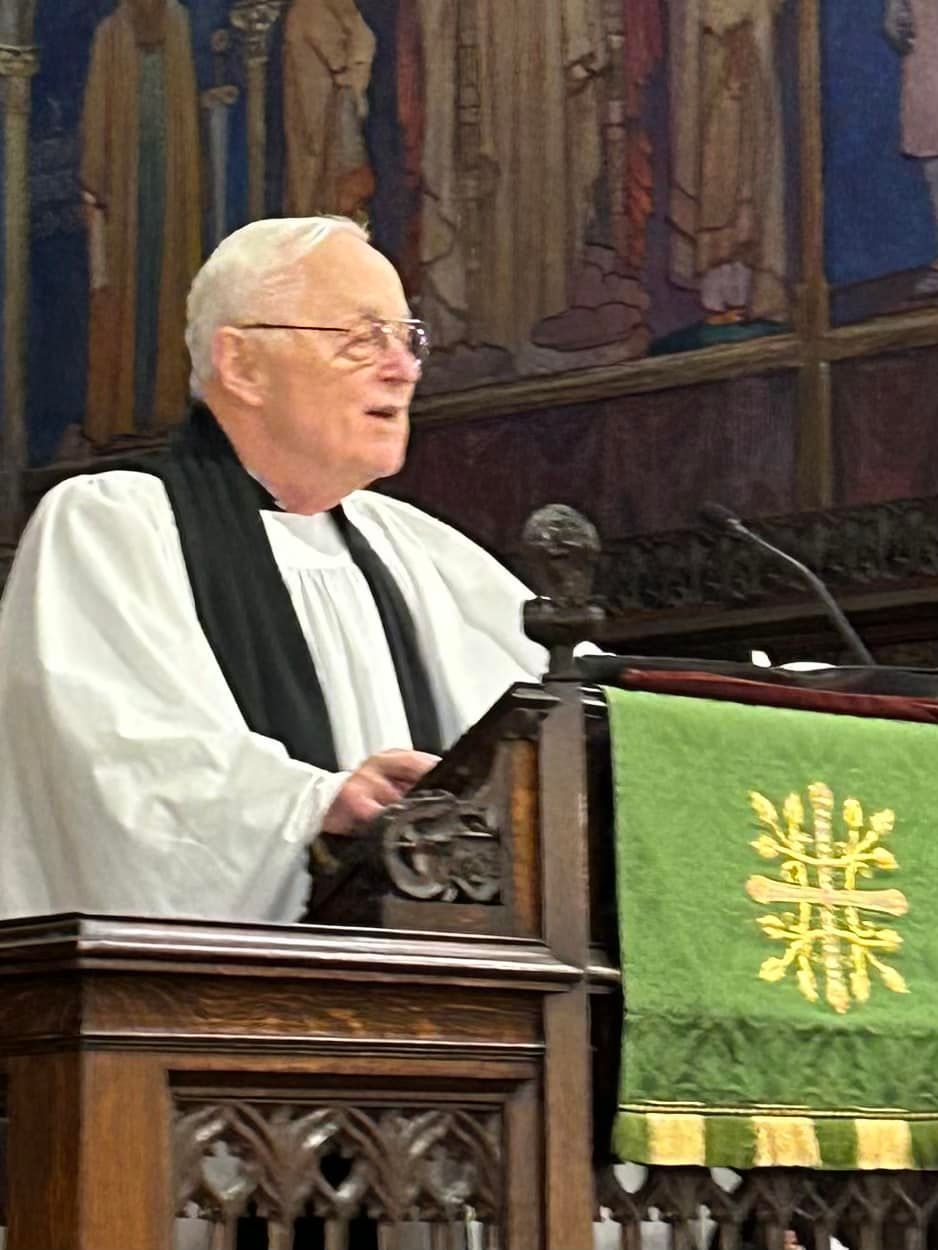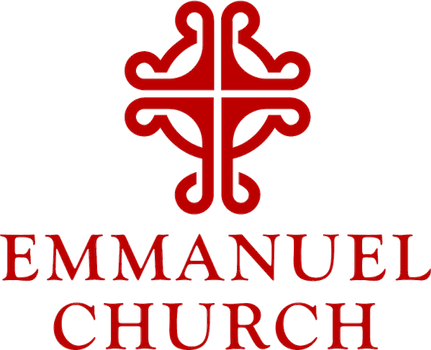Pentecost 8
I Am Not a Rock or an Island

I Am Not a Rock or an Island
We’ve been talking about hope over these past weeks — speaking hope into being, and building a resilient hope to keep us going when we, or anyone we care about, experiences hard times. We’re uniquely suited at Emmanuel for this Hope Project for at least two reasons: first, our grounding in scripture sets us up for success. Scripture is the poetic stories of the highs and lows of our faith ancestors’ experiences with God — including great examples of what doesn’t work as well as the love of God and neighbor that God calls for and smiles on. The second reason we’re uniquely situated to find and nurture hope at Emmanuel is our commitment to community, because community is hope’s origin story. Hope starts with our relationship with God and with each other. Relationship brings about belonging — a sense of connection and purpose — where you know you’re missed when you’re away. Belonging gives us joy. And joy stokes hope — that longing for the very best for those we know and who know us.
Most of you know that I spent the last week in New Orleans caring for our granddaughter Whitley as she recovered after a minor surgical procedure. All’s well — just a little benign cyst removed that made her a bit fussy for a couple of days, but her parents needed to work, and I had the privilege of preparing today’s sermon with a grandmother’s eyes and ears. That perspective helped me to relate to our lectionary today more personally — to feel it more keenly. Knowing my context, I think you can guess right away where I found hope in today’s lessons: the prophet Hosea’s tender comparison of God’s love for us to the love of a parent or grandparent for her child:
“When Israel was a child, I loved him…
I taught Ephraim to walk,
I took them up in my arms…
I led them with cords of human kindness,
with bands of love.
I was to them like those who lift infants to their cheeks.
I bent down to them and fed them.
Old Testament scholar and theologian Walter Brueggemann identifies the prophets as poets, who imaginatively, relentlessly — and sometimes annoyingly — describe God’s activity in vivid language that we can relate to with our own contexts and lived experience. Language itself is powerful, and the forms of language throughout scripture give us much more than just moral teaching. Today’s psalm sings of separation from God and community as wandering in the desert wastes, hungry and thirsty, with their spirits languishing within them, and God’s call back to community as putting their feet on a straight path to a city where they might dwell. Finding our way back into community from the wilderness takes a mighty hope. Hope that big doesn’t come from abstract ideologies or commitments, it comes from what we love: — our families, friends, communities, and the natural world. We find the language of hope we need to carry us through hard times in the poetry of scripture, which helps us connect our own experience to God’s activity in the world. Poetry’s job — the work of all music, painting, literature, dance, theater, or art of any kind — is to help us see the world in a new way, because it’s through metaphor and poetry that we can begin to think outside the box, as renowned theologian and Old Testament scholar Walter Brueggemann says, seeing the elusive power of God’s unfathomable love that refuses to be reduced to the limits of our human capacity to understand.
God is like a human parent, so we can begin to imagine from our own experience and context what our intense feelings of love and protection look like when magnified to God’s boundless measures. God’s love is resilient, hopeful and ever-connected even when again and again we turn against God, betray God’s trust, and turn against one another, as we’ll pray at the eucharist. If we experience all life’s liturgy — music, poetry, art, scripture — our processional banner woven from our ribbon affirmations of all we love about our community — with curiosity and wonder, we’ll hear echoes that remind us of experiences, that suddenly connect ideas and emotions, and we’ll see God’s activity around us with new eyes. No matter what God calls us to return, tirelessly, relentlessly revealing God’s righteous law through poet prophets and sages, imploring us to open our eyes to see God’s hand at work in the world about us. Urging us to come to come to the Table for strength and renewal as well as comfort and forgiveness. When our spirits languish within us, as the psalmist says we need to hear God’s voice calling us — back to community, to strength, and renewal in life and purpose: to love God with all our hearts, minds, and strength, and to love each other with the fierce intent that God loves us.
This is the rich man’s trap in Luke’s gospel this morning. Does anyone remember Paul Simon’s 1966 song “I Am a Rock”? This is the story of Luke’s rich fool in the poetry of our times. Estrangement from the community and God is his downfall, not his wealth. Even in the middle of 1960s Manhattan, he wanders alone in the desert wastes, his spirits languishing within him:
Hiding in my room safe within my womb
I touch no one and no one touches me
I am a rock I am an island
And a rock feels no pain
And an island never cries
As island dwellers ourselves, we may relate more closely to Paul Simon’s metaphors than to the agrarian images of the rich fool. Either way, it’s clear that the rich fool’s undoing is that he has isolated himself from community, relating only to his material goods, barns, crops, and wealth, not to the workers or family members who helped him attain his vast material stores, or those in his community that might depend on them for their survival. His only conversation partner is his soul — just another way to refer to himself — as he makes his futile plans alone. New Testament scholar Andrew McGowan reminds us in his blog this week that dependence on God and duty to neighbor are completely inseparable. Without a sense of our connection to others, we live not only in separation from our community, but from God.
Dean McGowan also reminds us that the New Testament Greek word for abundance as used in today’s gospel reading always implies community, not merely quantity, meaning not just more than enough for you, but a sufficient amount to share. We are not rocks, and while we live on an island, we are connected to each other in the world by more than just the Pell and the Hope bridges. Let our community build relationship, and our relationship yield a sense of belonging. Let our belonging bring us joy, opening the door to hope. And let us hear and reimagine our prayers and liturgy with the curiosity to speak hope into being. Amen




